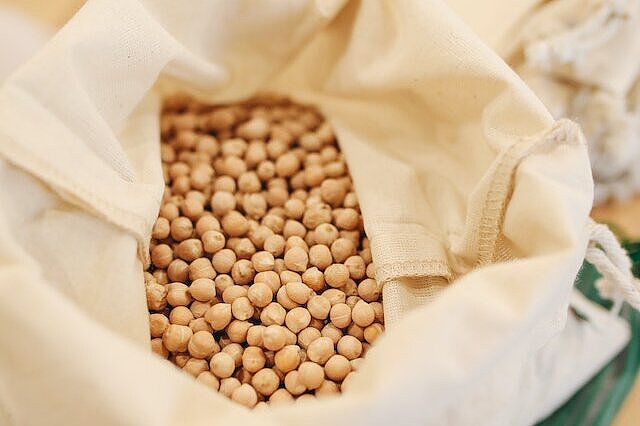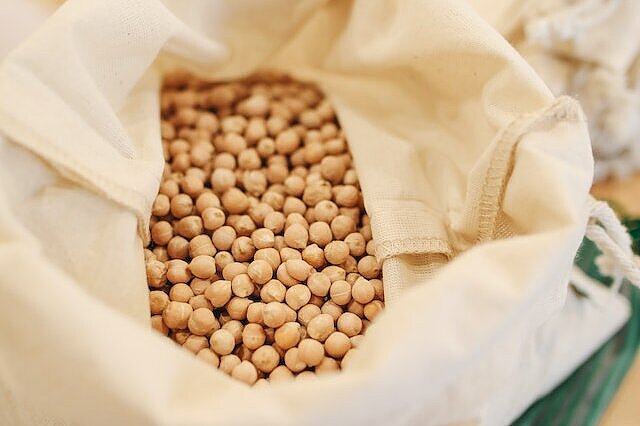Lupins

What are lupins?
Lupins belong to the papilionaceous family and are closely related to beans, lentils and chickpeas. There are over 200 different types of lupins, which vary in shape, size and color. The best known are the sweet lupin (Lupinus albus), the blue lupin (Lupinus angustifolius) and the many-leaved lupin (Lupinus polyphyllus). The seeds or kernels of the lupin are used as food or animal feed and contain a lot of vegetable protein, fiber, minerals and vitamins.
Are lupins poisonous to dogs?
The answer to this question depends on what type of lupin you are talking about. Most ornamental lupins in the garden or in pots are poisonous to dogs - and also to humans. They contain alkaloids that can lead to symptoms of poisoning such as vomiting, diarrhea, cramps or breathing difficulties. You should therefore make sure that your dog does not eat the leaves or seeds of these plants.
Sweet lupins, on the other hand, are non-toxic for dogs - provided they are prepared correctly. Raw sweet lupin seeds also contain alkaloids, but these can be removed by soaking and cooking. Then only the beneficial ingredients remain.
What are the benefits of lupins for dogs?
Lupins can be a good addition to your dog's diet - especially if it is vegan or vegetarian or has a meat allergy. Lupins provide a lot of plant-based protein (up to 40 percent), which your dog needs for healthy skin, bones and muscles. They also contain a lot of fiber (up to 30 percent), which aids digestion and increases the feeling of satiety. They also provide your dog with important minerals such as calcium, iron and magnesium as well as vitamins such as B1 and B6.
What are the disadvantages of lupins for dogs?
Lupins also have some disadvantages for dogs - especially if they eat too much of them or if they are not processed properly. As already mentioned, raw or incorrectly prepared lupin seeds can be poisonous and lead to poisoning. In addition, some dogs can have an allergic reaction to lupin protein - similar to soy protein. This can manifest itself in skin rashes, itching or gastrointestinal complaints.
Another disadvantage of lupin protein is its lower biological value compared to animal protein. This means that it contains fewer essential amino acids that your dog cannot produce itself. This means that your dog needs more lupin protein to meet its requirements. In addition, too much protein intake can put a strain on the kidneys.
To avoid these disadvantages, you should only use lupins as a supplement and not as the main ingredient in your dog's food. You should also make sure that the lupins are well soaked and cooked or consist of special products such as lupin flour or flakes. And, of course, you should always monitor your dog's tolerance and consult a vet if in doubt.
Lupins are a plant-based source of protein for dogs that can have many benefits - especially for vegan or vegetarian dogs or those with meat allergies. They contain a lot of protein, fiber, minerals and vitamins and can promote your dog's health. However, not all lupins are the same: ornamental lupins are poisonous to dogs and should be avoided. Sweet lupins, on the other hand, are non-toxic - if they are prepared correctly. Nevertheless, you should only feed lupins in moderation and watch out for possible side effects such as allergies or kidney problems.
If you notice any signs of hypersensitivity or poisoning in your dog, you should see your vet immediately. We are not a substitute for a vet, but we try to be as accurate as possible. Every dog reacts differently and we recommend you get a second opinion or consult your vet if in doubt.
Stay healthy and take good care of your four-legged friend!😊
Similar to Lupins
Soy is a legume that originates from East Asia and can be processed into various products. The best known are Soy milksoy yoghurttofuSoy sproutsSoy flourSoy breadSoy sauceSoybean oil Soybeans...
The short answer is yes, but only cooked and in moderation. When raw, chickpeas contain the toxic substance phasin, which causes the red blood cells to clump together and can lead to diarrhea,...
Lentils are the seeds of plants from the papilionaceous family. There are different varieties of lentils, which differ in shape, color and taste. The best known are red, green and brown lentils....
There are different types of peas that you can give your dog, such as Green peas: These are the classic peas that you can buy fresh, frozen or dried. They are safe for dogs as long as they are not...



